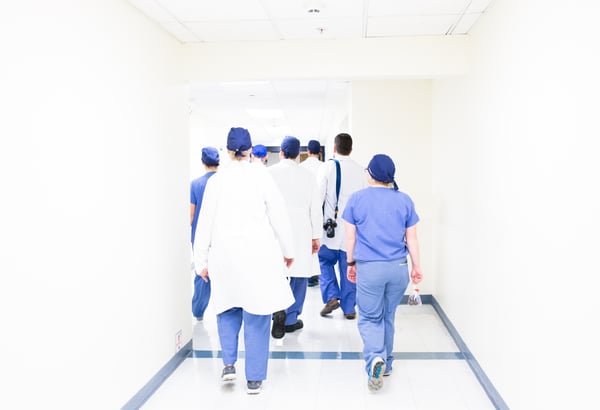Nurse Endoscopists: Faster, Cheaper, Better?
by Larissa Biggers, on June 22, 2018
In terms of quality, safety, and patient satisfaction, screening colonoscopies performed by nurse practitioners (NPs) are equivalent to those of physicians, according to the Journal of Clinical Gastroenterology and Hepatology. Given proper training, NPs could improve the sub-par colorectal cancer screening compliance rates in the United States with procedures that cost less and are equally safe and effective.

The U.S. Is Late to the Game
There are a mere handful of non-physician endoscopists in the U.S., but the situation is different elsewhere. Take the United Kingdom. In 2005 it began training nurse practitioners to perform colonoscopy. Numerous studies there show that these healthcare professionals have performed the procedure safely and effectively ever since, with high patient satisfaction and improved patient care. When a similar path was suggested in the U.S. there was significant resistance from physicians. Possible reasons for this reaction include the following:
- In the U.S., physicians earn procedure- and volume based-compensation for colonoscopy; this is not the case in the U.K.
- Colonoscopy training programs for non-physicians are limited, and there is no standardized curriculum. Also, given the shortage of gastroenterologists (GIs), instructors and mentors are at a premium.
- GIs spend a minimum of three years in specialty training and might (justifiably) be concerned about non-physicians carrying out advanced therapeutic procedures during colonoscopy.
The Need Is Real
Even the strongest critic cannot argue with the facts. There are simply not enough GIs to meet the demand for colonoscopy in the U.S. Back in 2010, the Agency for Healthcare Research and Quality indicated that the number of colonoscopies performed must increase significantly just to keep pace with the current rate (and that was with 40% of the eligible population not getting screened). An earlier (2004) study estimated that 1,000 additional endoscopists were needed to screen 70% of the eligible population. At that time there were only 59 million Americans aged 50 to 74 years who needed screening; in 2017 there were approximately 94 million.

New Screening Guidelines
While the shortage of GIs has been a problem for decades, the situation is made more acute by the new American Cancer Society recommendations to begin colon cancer screening at 45, rather than 50. This guideline adds 22 million people to already long lines for colon cancer screening. And in the eyes of many experts, the need to be screened is more urgent today than ever before. While overall rates of colorectal cancer have fallen since the mid-1980s, there's been a steady rise of the disease in people younger than 50.
Why Not Nurse Endoscopists?
Nurses trained to perform colonoscopy could go a long way toward solving the GI supply problem. Obviously, a standardized training curriculum must be put in place. But today, advanced practice providers like Certified Registered Nurse Anesthetists practice in all 50 states. Why not nurse endoscopists?


